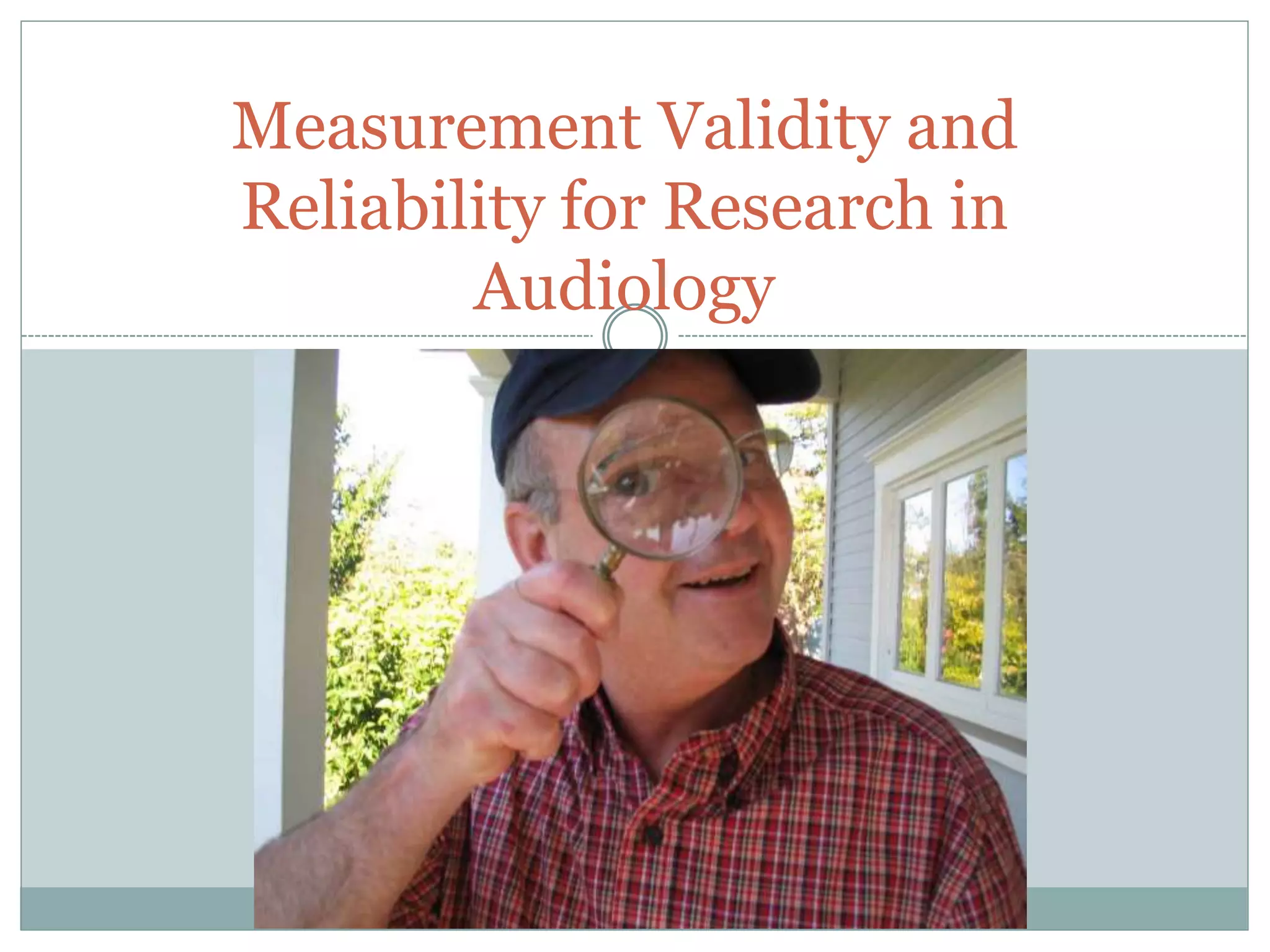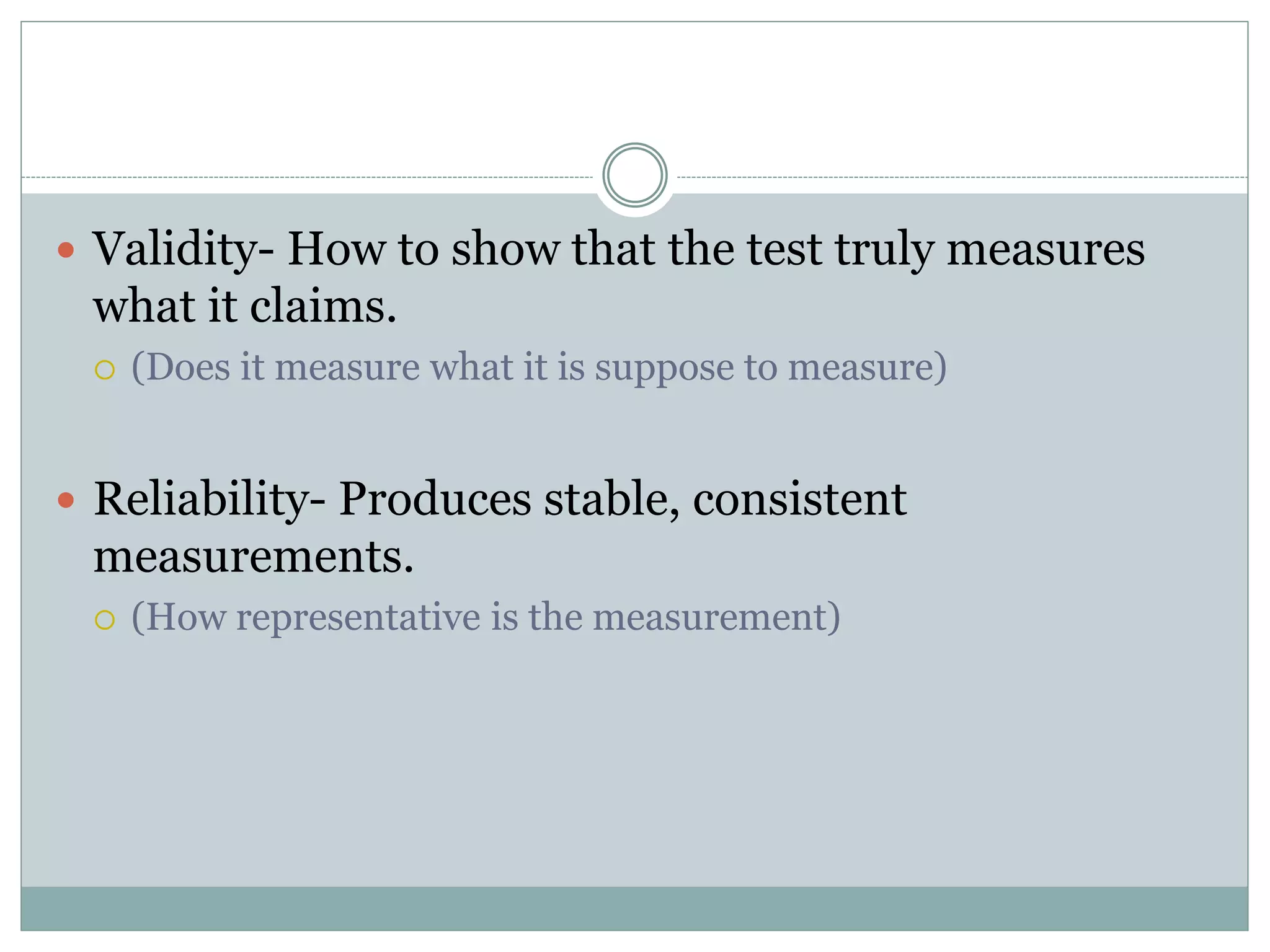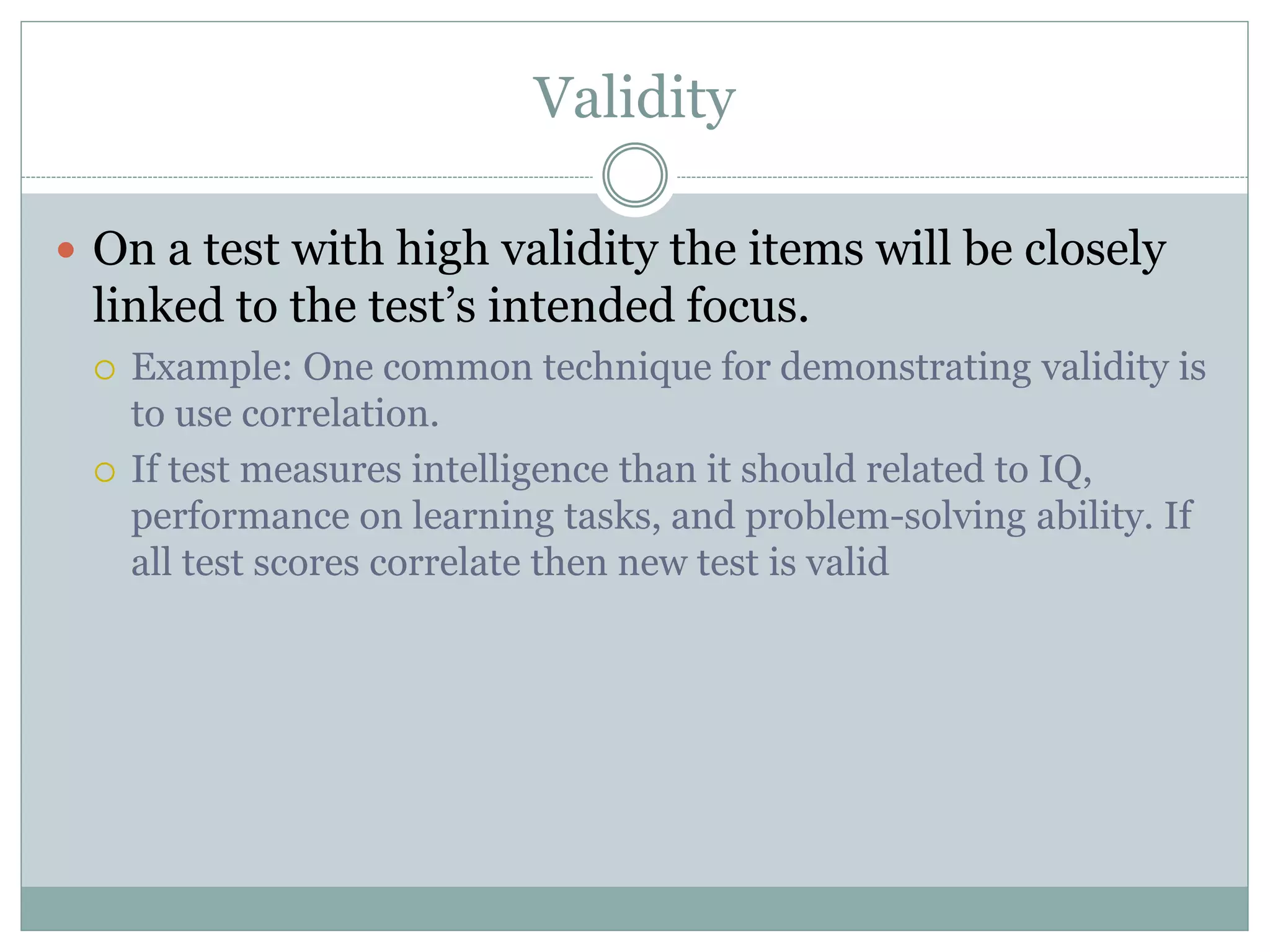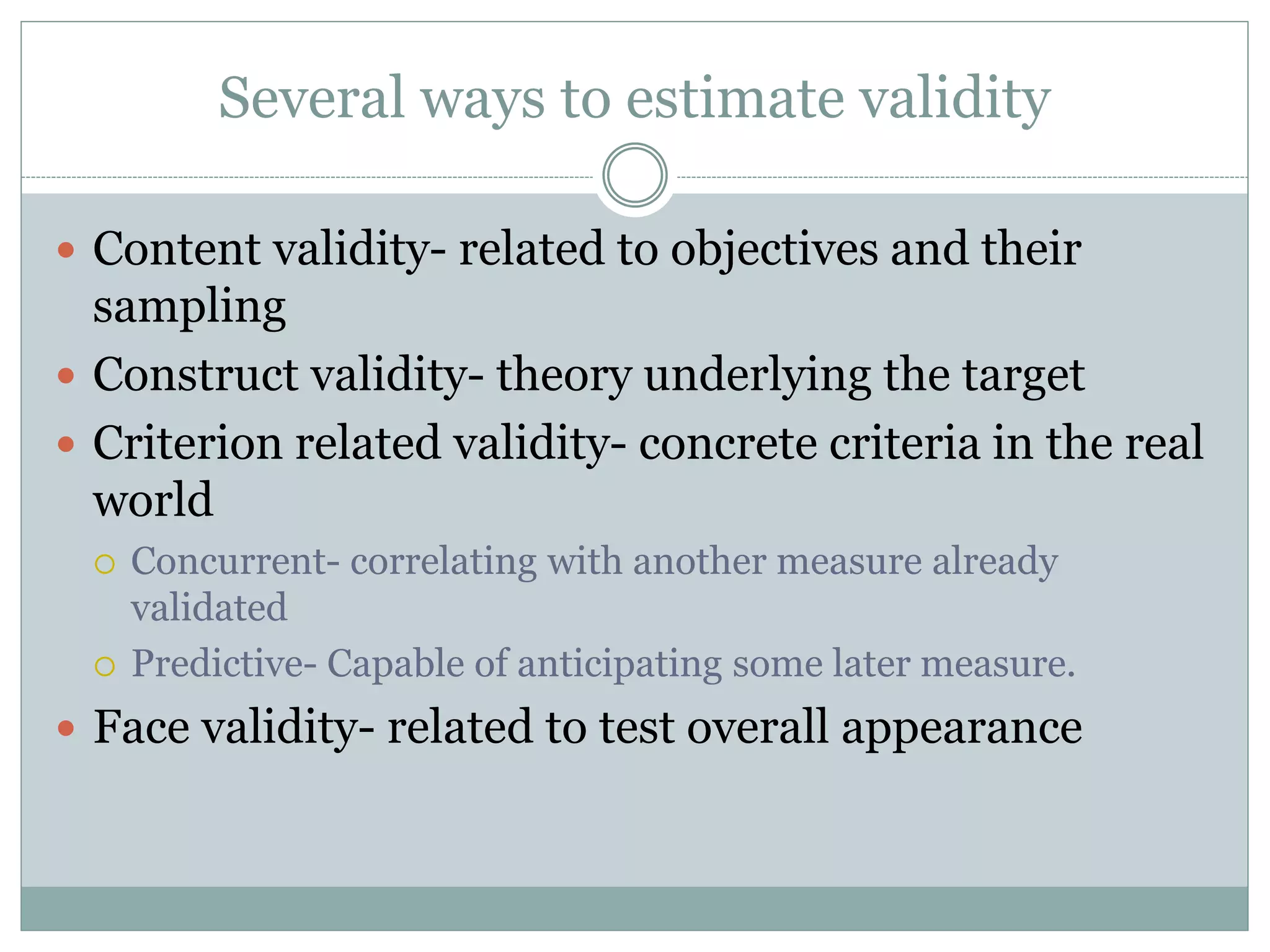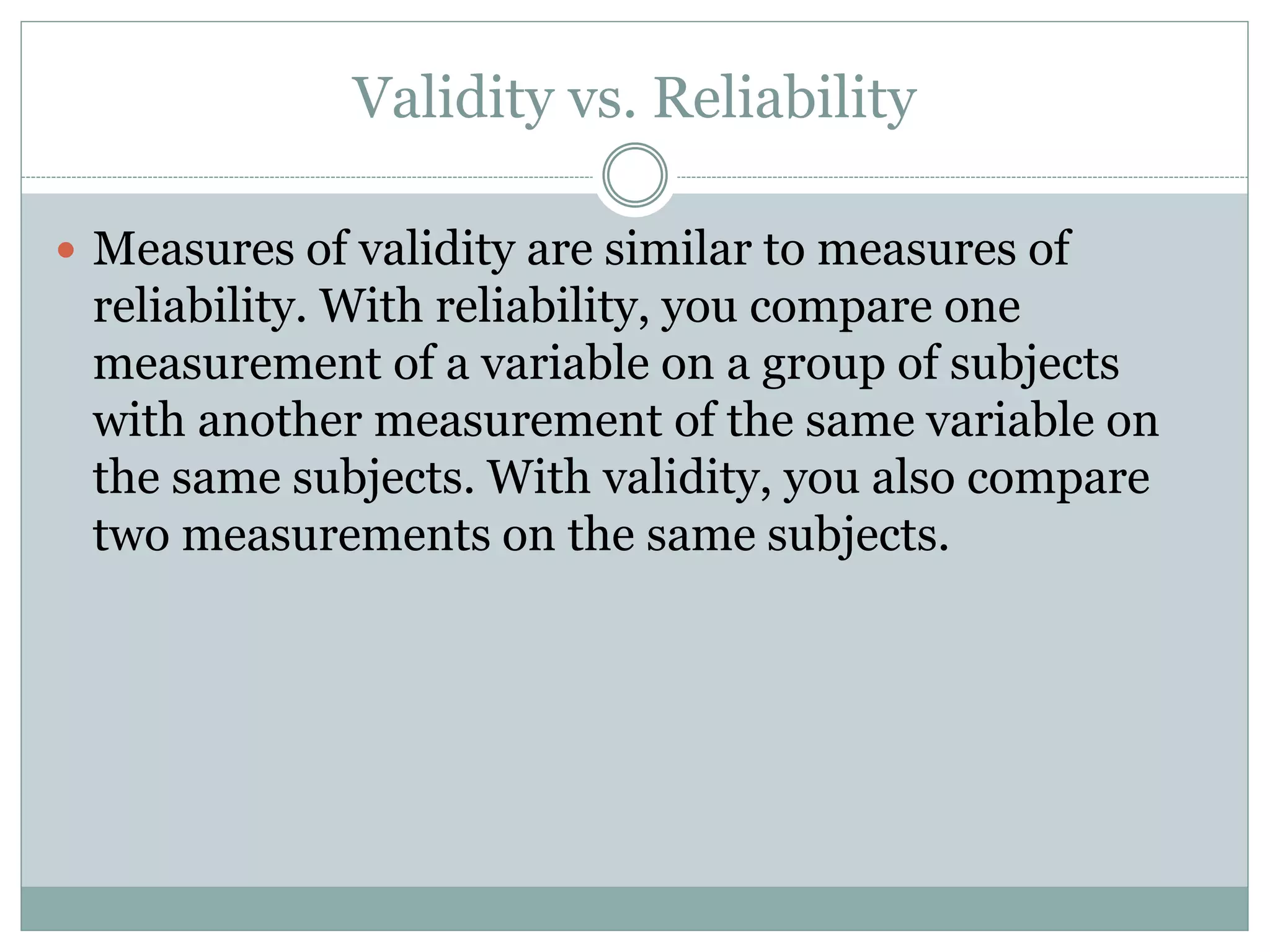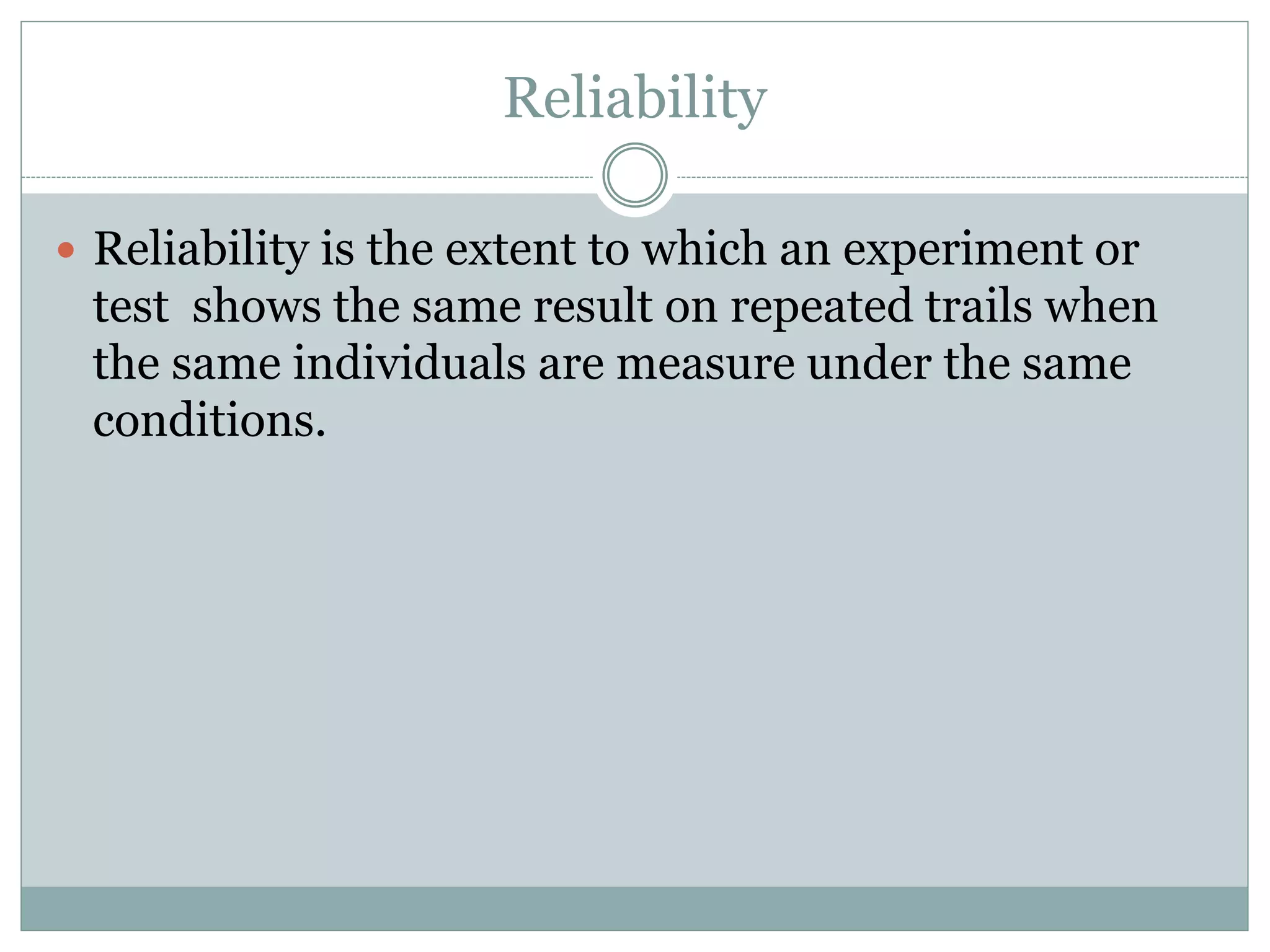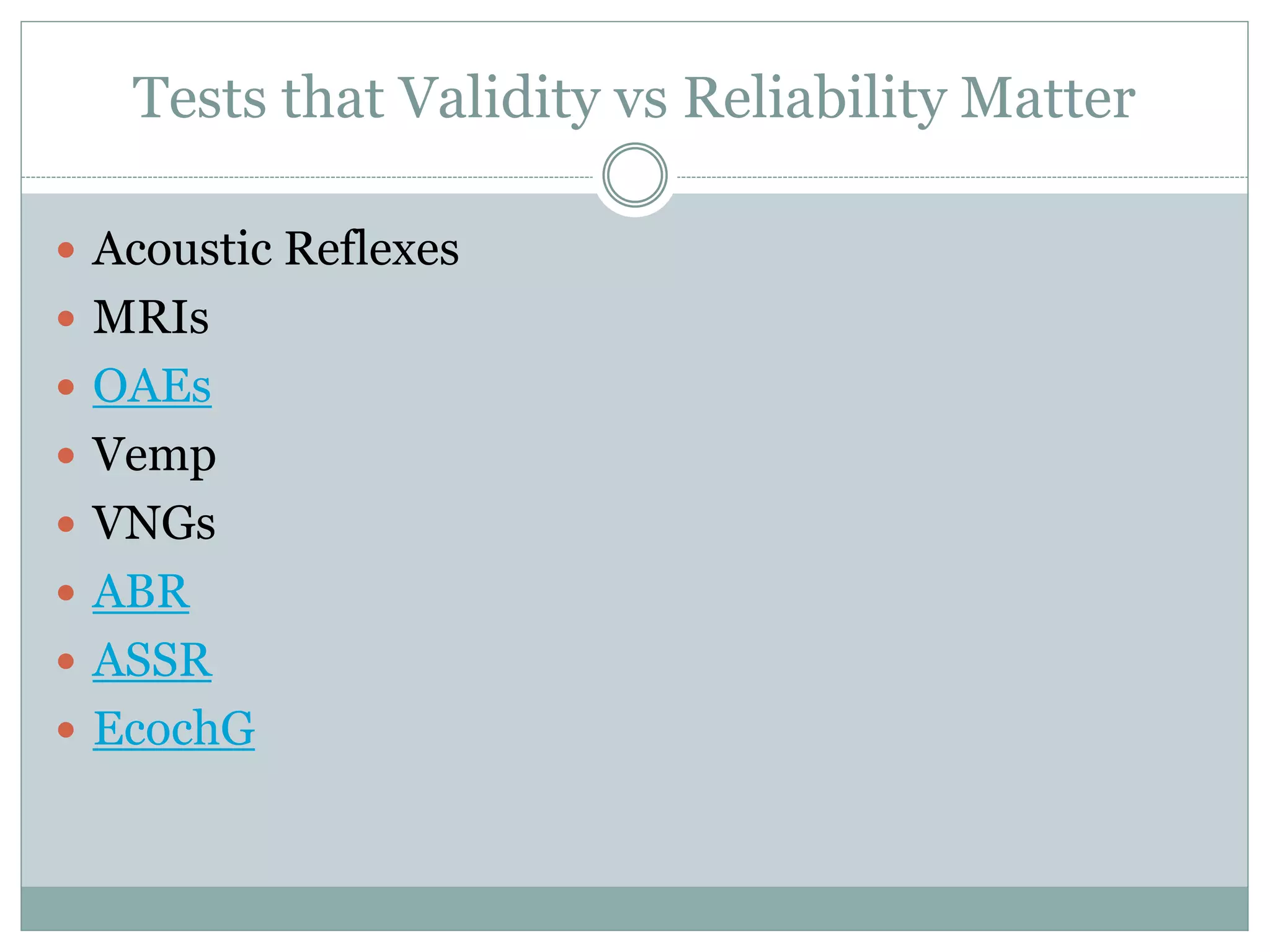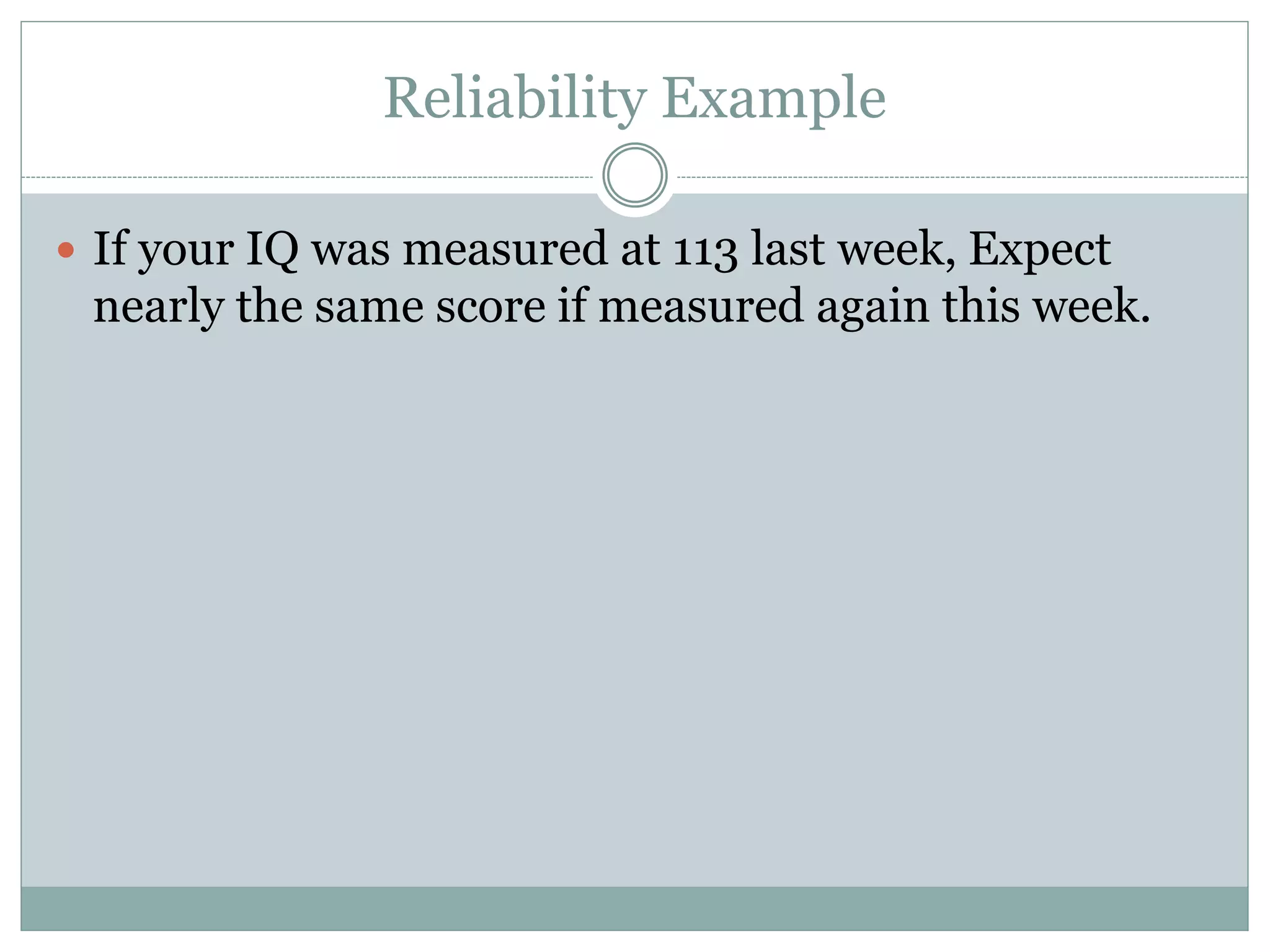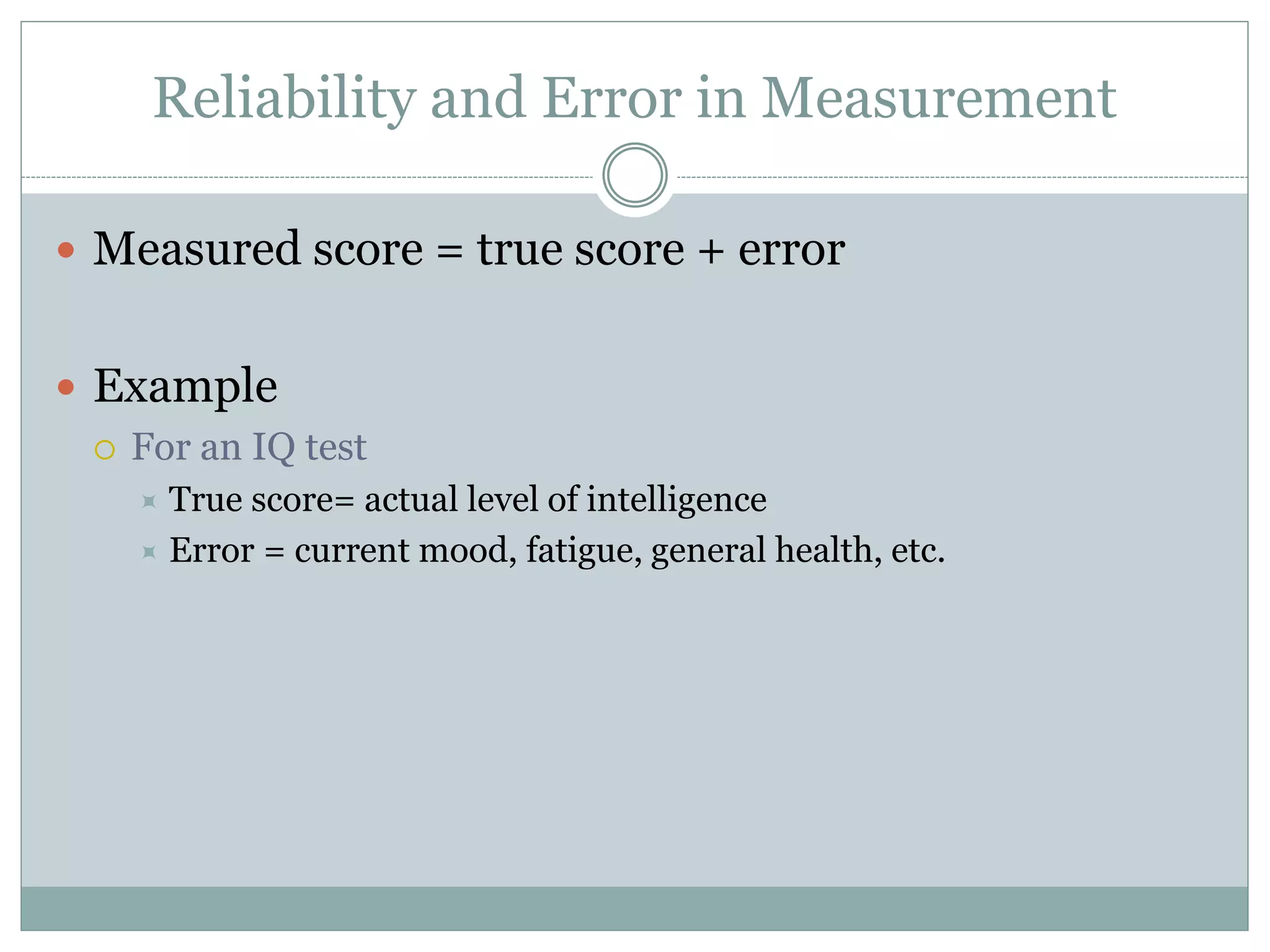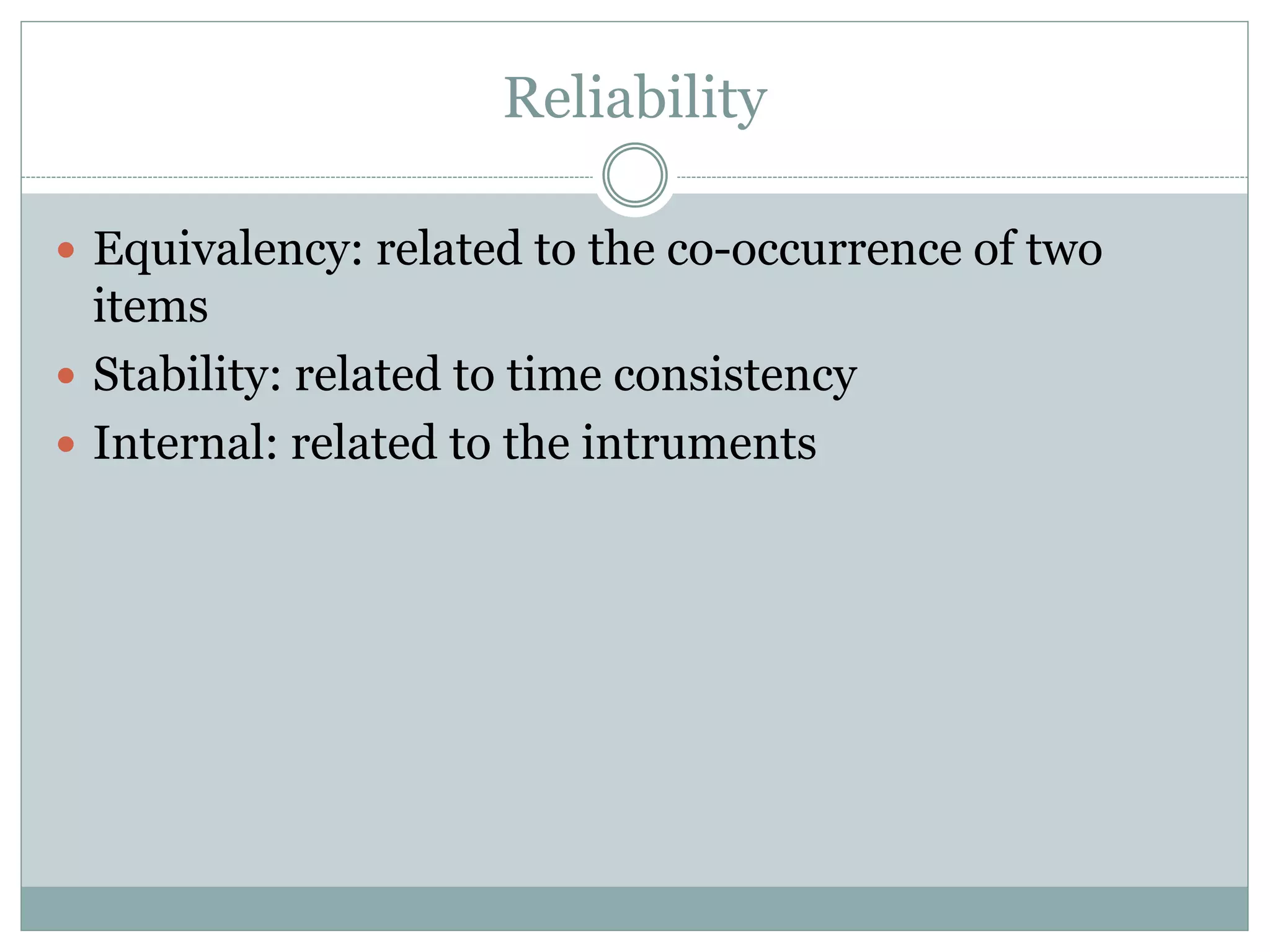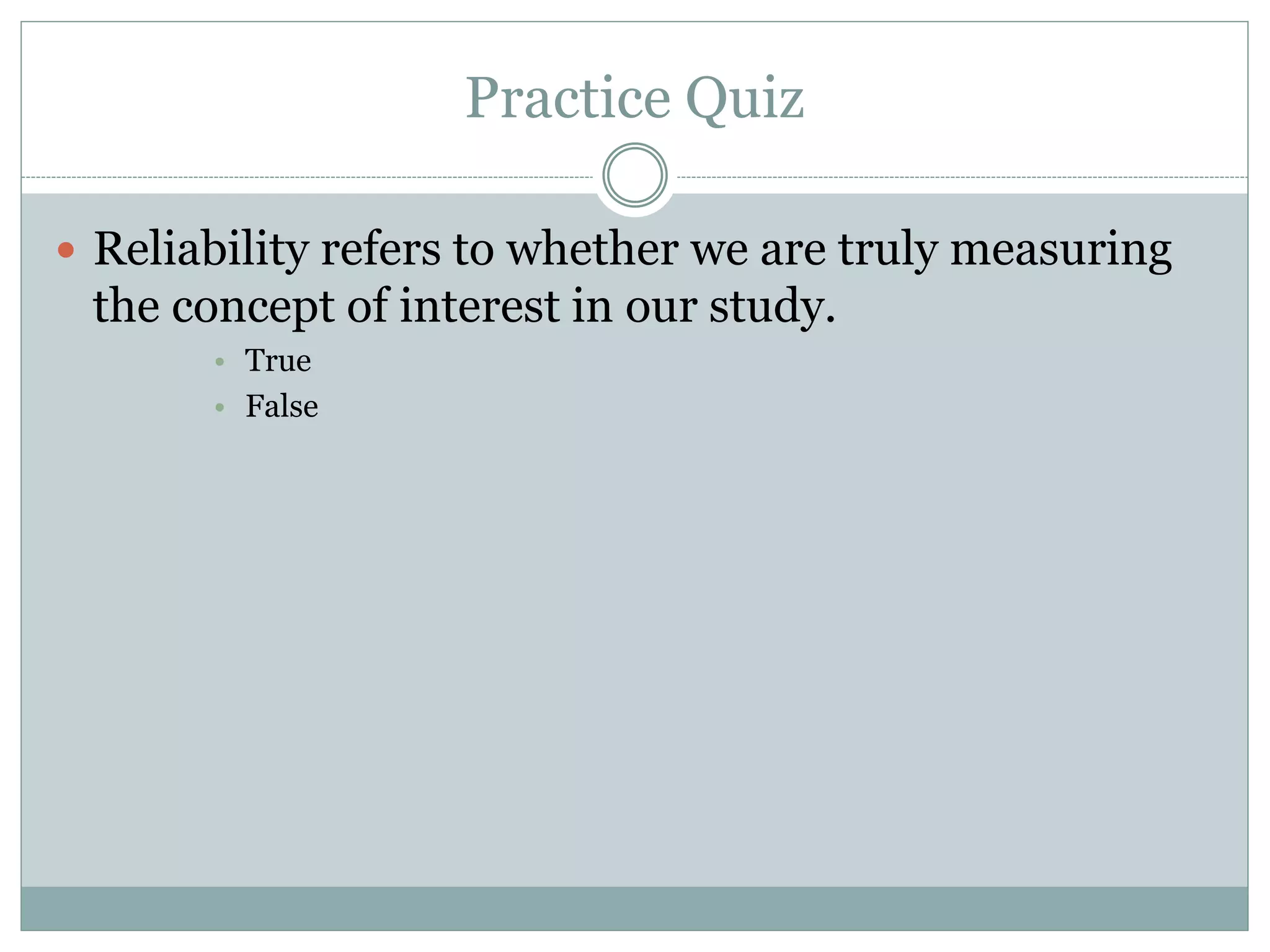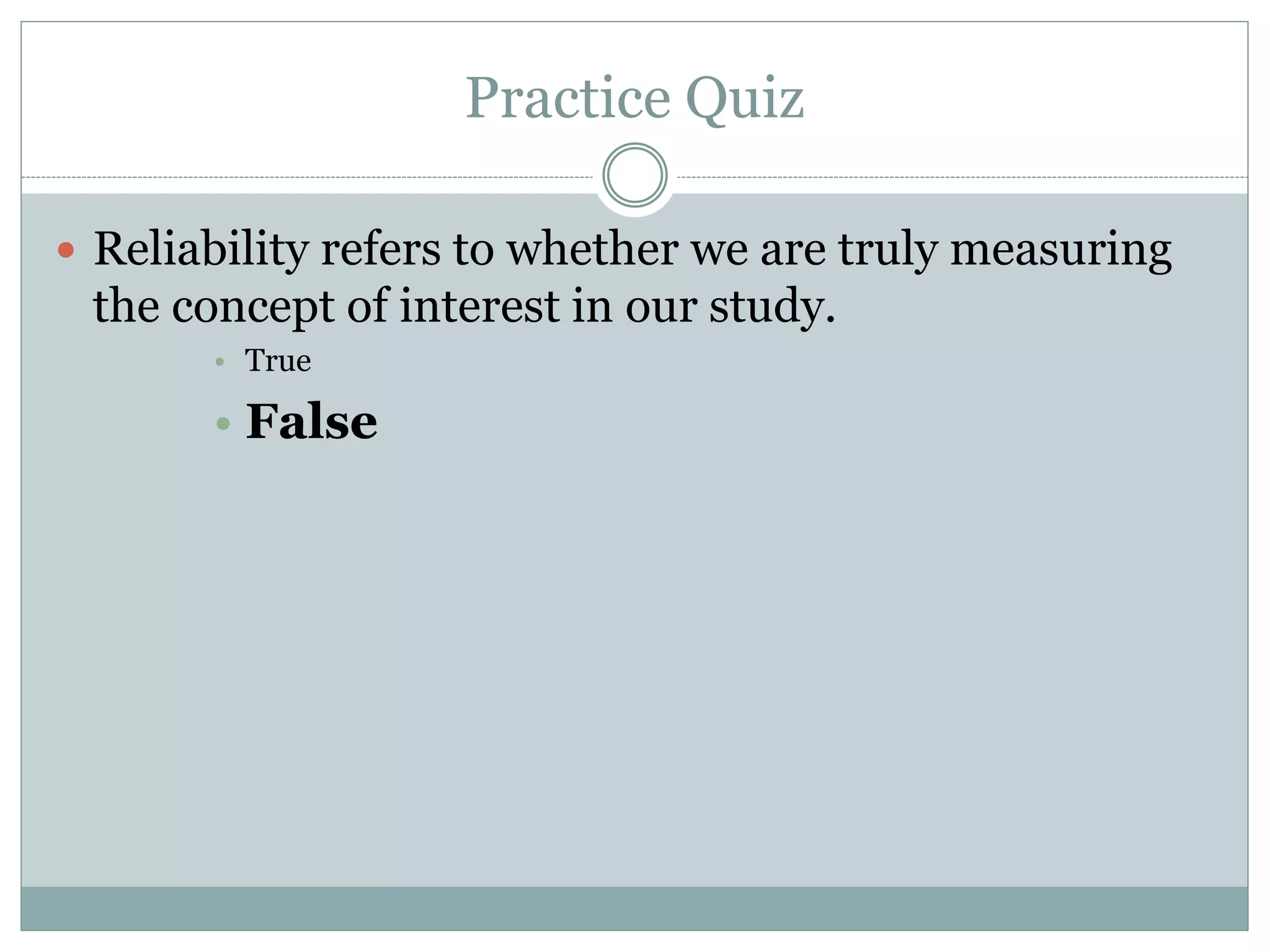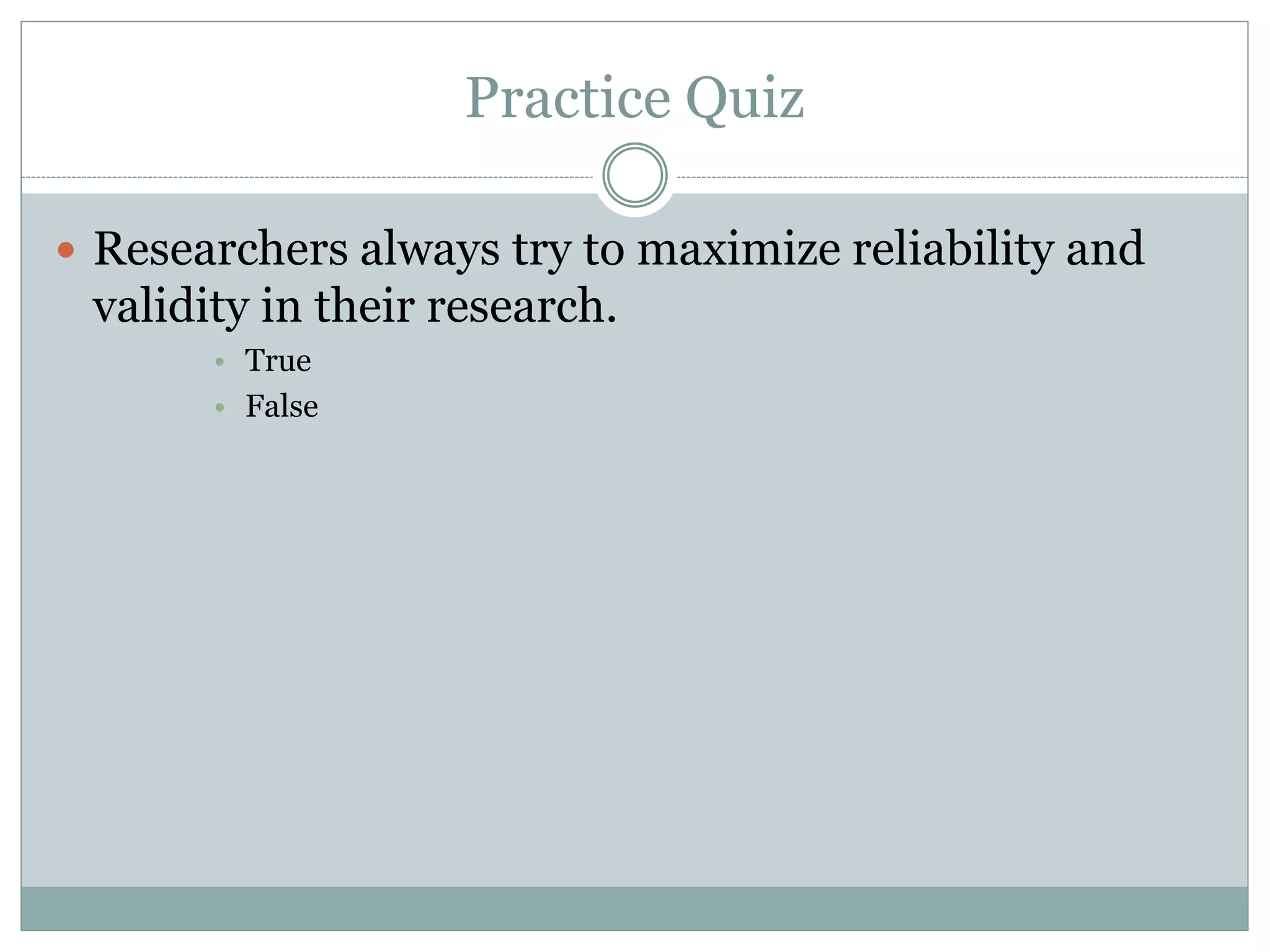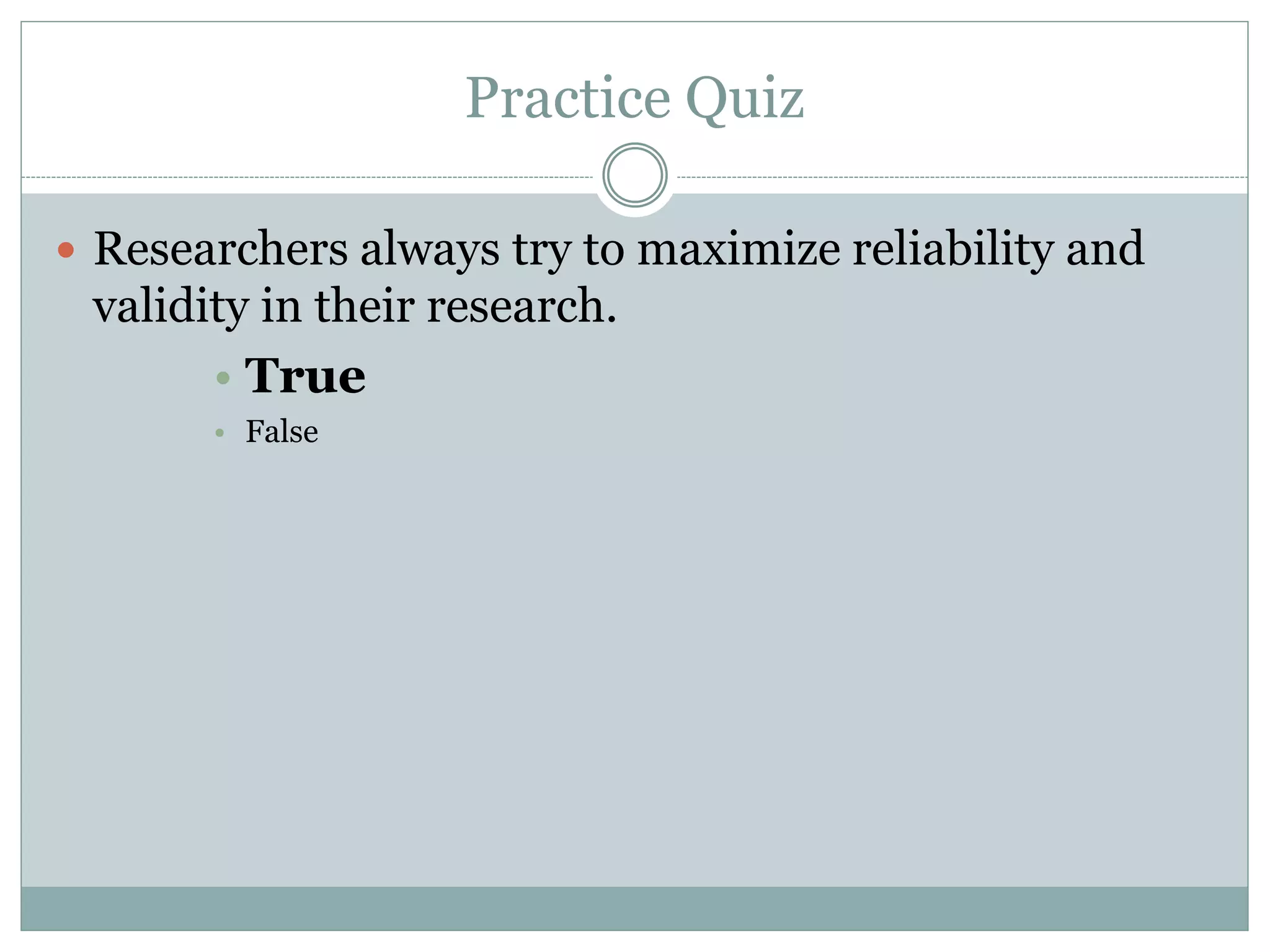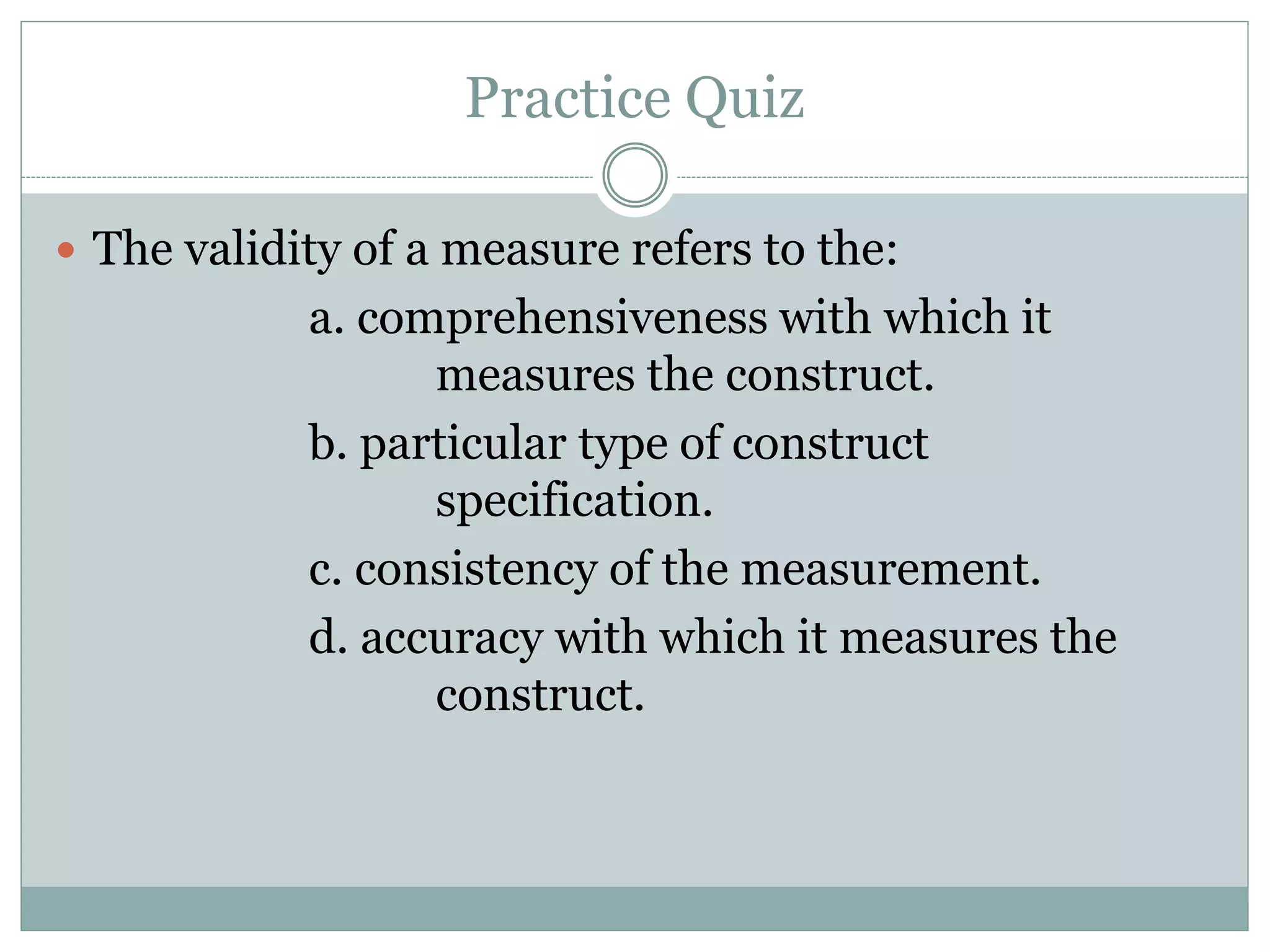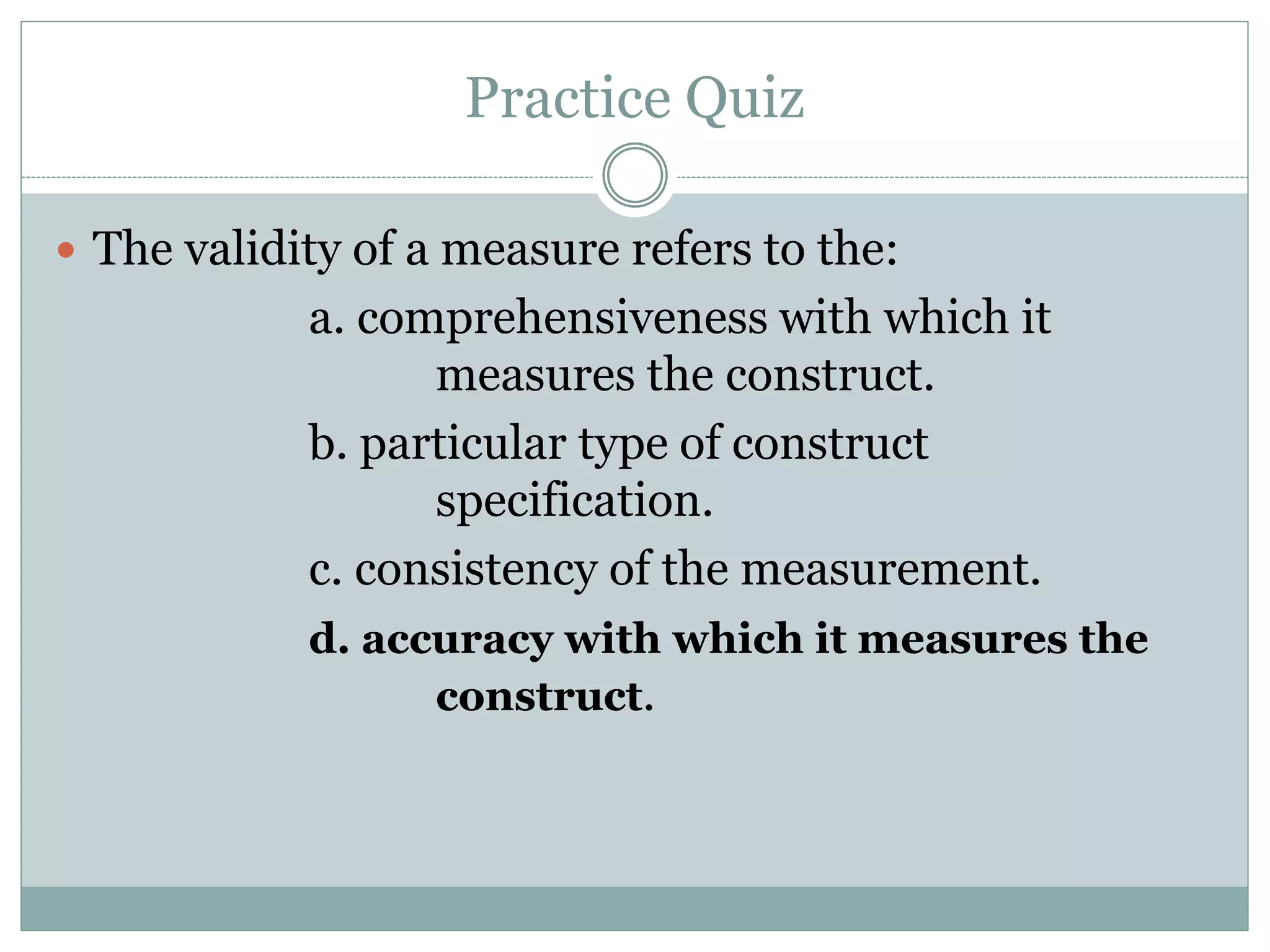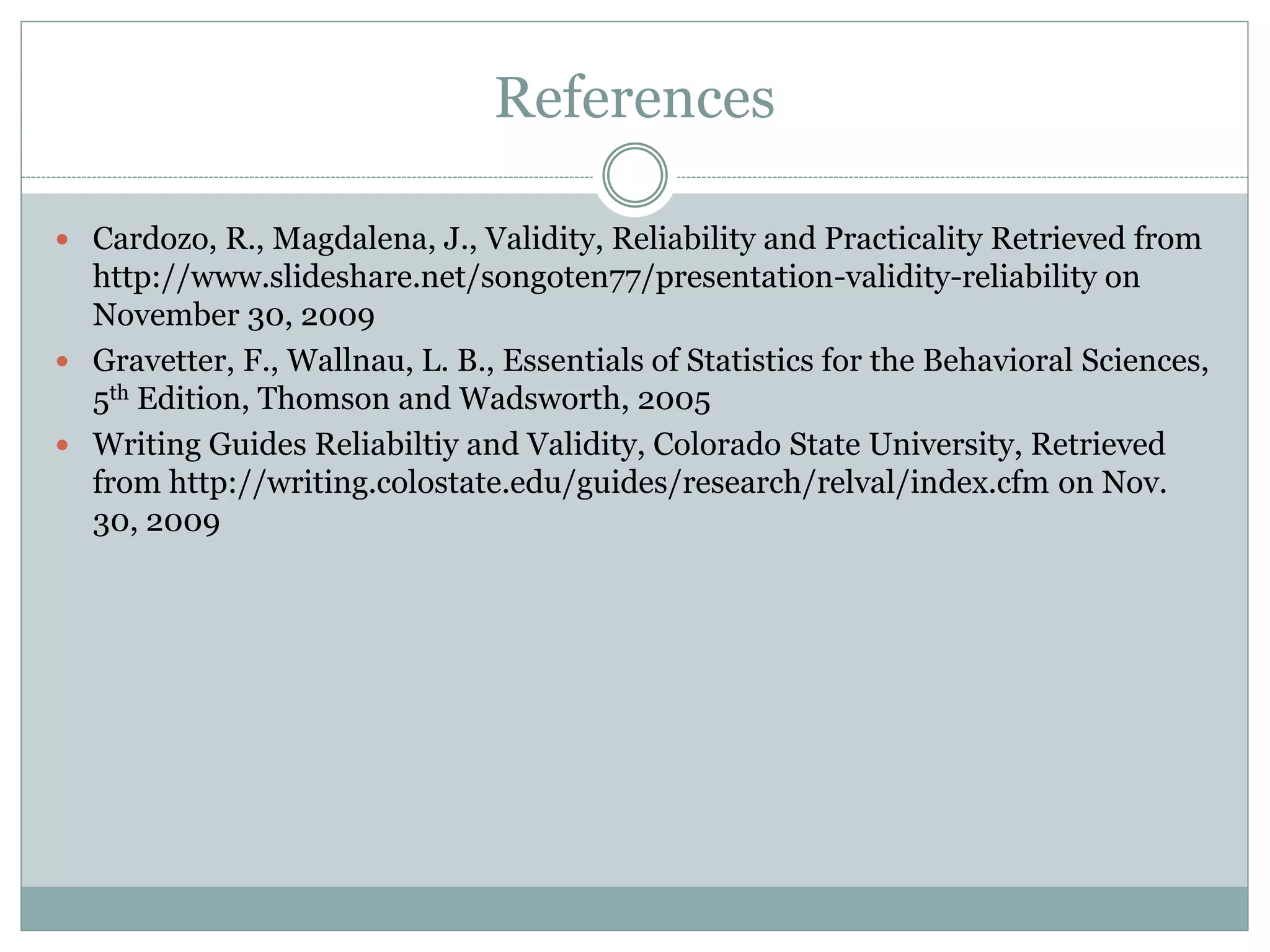This document discusses measurement validity and reliability, which are important concepts for research in audiology. It defines validity as showing that a test truly measures what it claims to measure, and reliability as producing stable, consistent measurements. There are several types of validity including content, construct, and criterion-related validity. Reliability refers to a test producing similar results under the same conditions and is measured through equivalency, stability, and internal consistency. Both validity and reliability are important for tests used in audiology research to accurately measure intended constructs.
